|
|
|
|
|
|
|
|
Charting Japan's Arctic Strategy, October 19, 2015 (Washington, D.C., USA). Japan's presence in the Arctic is not new, but it has been limited mostly to scientific research. Japan has stepped up its engagement after it gained observer status to the Arctic Council and appointed its first Arctic ambassador in 2013. However, Japan has yet to flesh out a full-blown Arctic strategy that identifies the range of its national interests in the polar region and actionable strategies to achieve them. The Arctic offers Japan an opportunity to expand cooperation with the United States in an uncharted area, poses hard questions on how to interact with Russia in the post-Ukraine era, and creates the interesting proposition of whether China and Japan can cooperate in articulating the views of non-Arctic states. Registration is required. The event will webcast as well.
Today's Congressional Action:
The House is not in session. The Senate is expected to consider non-Arctic legislation.
|
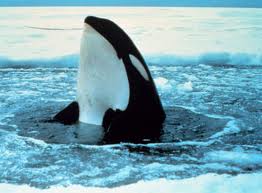 Scientists Investigate Ocra Whale Found Dead in Southeast Alaska. Scientists are investigating the death of an orca whale found on the shore of Kupreanof Island north of Petersburg. The National Oceanic and Atmospheric Administration responded to the sighting on Friday. Fisheries Spokeswoman Julie Speegle said a team of marine mammal experts went to the area to secure the killer whale and take samples, KFSK-FM reported. Alaska Dispatch News Scientists Investigate Ocra Whale Found Dead in Southeast Alaska. Scientists are investigating the death of an orca whale found on the shore of Kupreanof Island north of Petersburg. The National Oceanic and Atmospheric Administration responded to the sighting on Friday. Fisheries Spokeswoman Julie Speegle said a team of marine mammal experts went to the area to secure the killer whale and take samples, KFSK-FM reported. Alaska Dispatch News
Tourism Operators in Northwest Passage Gateway Worry About Safety Security. Security and safety issues such as threats from terrorists, drug-dealers, poachers, artifact-hunters and illegal refugees, who could all use Cambridge Bay as an entry point to slip into southern Canada, or to other countries: these are among the concerns raised Oct. 15 in Cambridge Bay during a Government of Nunavut tourism consultation. If these aren't resolved, the situation in this largely unsupervised gateway to the Northwest Passage could deteriorate into a "free-for-all," as one participant suggested. Nunatsaiq Online
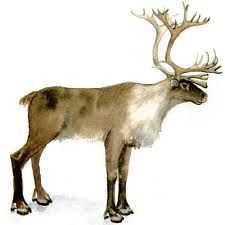 Despite Ample Harvest, Western Caribou Herd Expected to Continue Decline. While hunters in many Arctic communities were able to harvest plenty of caribou this year, biologists say the apparent abundance does not mean the caribou herd is rebounding. The Western Arctic herd has been on the decline for years now. Today it has dropped to half its 2003 population of 490,000. In recent years, the herd has been late coming down from the North Slope, and has deviated from traditional routes, frustrating hunters in some communities. Alaska Dispatch News Despite Ample Harvest, Western Caribou Herd Expected to Continue Decline. While hunters in many Arctic communities were able to harvest plenty of caribou this year, biologists say the apparent abundance does not mean the caribou herd is rebounding. The Western Arctic herd has been on the decline for years now. Today it has dropped to half its 2003 population of 490,000. In recent years, the herd has been late coming down from the North Slope, and has deviated from traditional routes, frustrating hunters in some communities. Alaska Dispatch News
Interior Department Cancels Lease Sales in Alaska's Arctic Waters, Citing Low Interest. The Interior Department is canceling several lease sales for offshore Arctic drilling for the 2012-17 period, citing diminished interest. At the same time, Interior's Bureau of Safety and Environmental Enforcement told Shell and Statoil that they won't be able to suspend and thereby extend their leases. They will still expire in 2017 in the Beaufort Sea and in 2020 in the Chukchi Sea. Alaska Dispatch News
House Committee on Natural Resources Chairman Says Arctic Offshore Lease Cancellation Plays into Russia's Hands. House Committee on Natural Resources Chairman Rob Bishop (R-UT) issued the following statement on the announcement made today by the U.S. Department of the Interior that it will cancel the two potential Arctic offshore lease sales scheduled under the current five-year offshore oil and gas leasing program for 2012-2017: This Administration has dangerous priorities. It drives Shell out of the Arctic by giving the company regulatory hell for years, then uses this victory for big special interest groups to stop any hope for future energy development in the Arctic. While the Obama Administration pats itself on the back, Putin is patting this Administration on the head. Obama has once again played directly into Russia's hands as he destroys our nation's energy potential. Sierra Sun Times
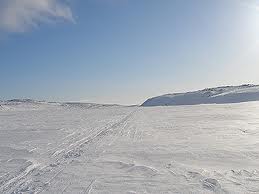 Warming Arctic Could Uncover Native Artifacts. A researcher at the University of Alaska Fairbanks is attempting to predict where higher Arctic temperatures will melt snow to uncover ancient Alaska Native artifacts. Perennial, stationary snow patches on the Brooks Range that accumulated over thousands of years are expected to deteriorate as the Arctic warms at double the global average, the Alaska Dispatch News reported. Juneau Empire Warming Arctic Could Uncover Native Artifacts. A researcher at the University of Alaska Fairbanks is attempting to predict where higher Arctic temperatures will melt snow to uncover ancient Alaska Native artifacts. Perennial, stationary snow patches on the Brooks Range that accumulated over thousands of years are expected to deteriorate as the Arctic warms at double the global average, the Alaska Dispatch News reported. Juneau Empire
|
Legislative Action
No Arctic legislation was formally considered Friday.
|
|
Future Events
Penn State University will host an afternoon panel of national experts in the Arctic and in US interests in the region. Building on the law of the sea expertise of VADM James Houck (former Navy Judge Advocate General and now Interim Dean of the Law School and School of International Affairs at Penn State) and the knowledge of the changing Arctic environment of RADM David Titley (former head of the Navy's Task Force Climate Change and now professor from practice in the Department of Meteorology), and Fran Ulmer, Chair of the US Arctic Research Commission (keynote speaker), the panel brings together experts in science, law, policy, and Arctic diplomacy. We see these experts individually at events in Washington, but Penn State is doing a great service in bringing them altogether at one event in an region that seldom gets such first hand expertise.
The Polar Oceans and Global Climate Change, November 3-6, 2015 (La Jolla, California USA). The American Polar Society will host this Symposium at Scripps Institution of Oceanography. A flyer with a partial list of presenters is available on the Society's website (americanpolar.org) and from the Society's Membership Chairman by email.
Forum for Arctic Modeling and Observational Synthesis Meeting, November 3-6, 2015 (Cape Cod, MA, USA). On November 3rd, the 2015 School for young scientists will consider "Regional Oceanography of the Arctic marginal seas" with lectures covering major features of atmospheric, sea ice and oceanographic regimes of the: Bering, Chukchi, Beaufort, East-Siberian, Laptev Sea, Kara, Barents and Nordic seas. On November 4-6, the meeting portion will summarize project accomplishments for the last 3 years of activities and will focus on the formulation of scientific questions and directions for FAMOS future research (2016-2019) to: (a) improve Arctic modeling, employing very high resolution models; (b) develop and test new arctic monitoring/observing systems and (c) improve predictions of Arctic environmental parameters with reduced uncertainties.
Due North: Next Generation Arctic Research & Leadership, November 5-8, 2015 (Calgary, Alberta, Canada). The Association of Canadian Universities for Northern Studies (ACUNS) will convene an interdisciplinary conference of early career scientists working on Arctic issues. Topics will include: Arctic Communities, Arctic Sustainable Development, Arctic Wildlife, Ecosystem and Biodiversity, Arctic Food Security, Arctic Landscapes, Climate Change and Adaptation, Disaster Risk Management, Policy, Politics and Leadership, Arctic Environment (Data and Techniques), Arctic Resources, and Future of Arctic.
Matchpoints Seminar, November 12-13, 2015 (Aarhus, Denmark). The purpose of the conference is to provide a forum for policy-makers and academics to deliberate on how the security, resilience and sustainability of the globalized Arctic region and its peoples may be enhanced, and what instruments of governance may most suitably contribute. The conference will spell out (1) how the different relevant dimensions of security (military, economic, environmental, energy and human security) manifest themselves in the governing / governance arrangements in the Arctic; (2) how the challenges associated with each manifest themselves, individually and together; and (3) what forms of governing arrangements can best help to address the challenges. The conference will also focus on (4) how the Nordic countries and nations, including Greenland, the Faroe Islands and Aaland Islands, may contribute to the peace, stability and prosperity of the Arctic region through collaborative efforts based on their shared social, human, environmental and democratic values.
Arctic Observing Open Science Meeting, November 17-19, 2015 (Seattle, Washington). The Arctic Observing Open Science Meeting will be 2.5 days and held at the Hyatt at Olive 8 in Seattle, Washington. The conference will bring together individuals and teams involved in the collection, processing, analysis, and use of observations in the Arctic - from academia, agencies, industry, and other organizations. The meeting will be convened as a combination of plenary talks, parallel science sessions, and a poster session. The deadline for the Meeting Registration is Tuesday, 20 October. The agenda and registered attendees can be found on the meeting website.
In the Spirit of the Rovaniemi Process 2015, November 24-26, 2015 (Rovaniemi, Lapland, Finland).When the Arctic Environmental Protection Strategy, the so-called Rovaniemi Process, was adopted in 1991, it aimed at overcoming divisions and turning the zone of Cold War military tensions into a region of peace and co-operation. In this joint effort focusing on the protection of environment, and later, sustainable development, the Arctic states supported by indigenous organizations laid grounds for institutionalized collaboration and the emergence of Arctic regional identity. The second international conference will bring together decision-makers, scholars, artists, designers and students to address these questions and discuss the Arctic in global, regional and local perspectives.
Arctic Encounter Paris (AEP 2015), December 11-12, 2015 (Paris, France) (During the UN Convention on Climate Change - COP21). The Arctic Encounter Paris will take place at the French Senate at Luxembourg Palace and the 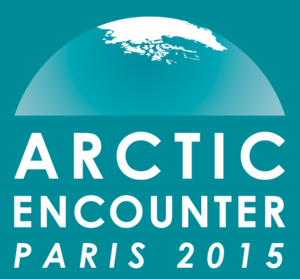 French Military College, École Militaire, in Paris, France, on the final days of the monumental United Nations Convention on Climate Change (COP21) where thousands of global citizens and government delegates will be gathered to deliberate the world's response to our changing planet in Paris. The AEP is the only Arctic policy side event currently planned to take place during the UN Convention. A reception will take place following the closing panel. French Military College, École Militaire, in Paris, France, on the final days of the monumental United Nations Convention on Climate Change (COP21) where thousands of global citizens and government delegates will be gathered to deliberate the world's response to our changing planet in Paris. The AEP is the only Arctic policy side event currently planned to take place during the UN Convention. A reception will take place following the closing panel.
 Fall meeting of the American Geophysical Union, December 14-18, 2015 (San Francisco, California). The 48th meeting of the union brings together nearly 24,000attendees, and lots of Arctic research results. The scientific program is here. There will be several Arctic-related "Town Hall" meetings, including those sponsored by NASA, DOE, NSF, ISAC, IARPC, and SEARCH. Fall meeting of the American Geophysical Union, December 14-18, 2015 (San Francisco, California). The 48th meeting of the union brings together nearly 24,000attendees, and lots of Arctic research results. The scientific program is here. There will be several Arctic-related "Town Hall" meetings, including those sponsored by NASA, DOE, NSF, ISAC, IARPC, and SEARCH.
This symposium is part of an ongoing initiative of the National Academies of Science Polar Research Board to expand public understanding of why the dramatic changes affecting the Arctic region ultimately matter to us all. The agenda features engaging presentations and discussions with top Arctic science and policy experts, and displays and interactive exhibits that illustrate Arctic change and its global impacts. The event is free and open to the public. There are sponsorship opportunities, and a call for exhibitor applications (by Oct.31, 2015). Audience space is limited, so register today; and please encourage your friends, neighbors, and colleagues to participate-as our goal is to reach well beyond the small circle of specialists who typically attend Arctic-themed events in the DC area. The U.S. Arctic Research Commission is helping to sponsor this event.
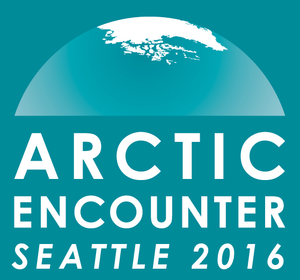 Building upon the preceding Arctic Encounter event in Paris, the third annual Arctic Encounter Symposium (AES) in Seattle, Washington will convene policymakers, industry leaders, and leading experts to confront the leading issues in Arctic policy, innovation, and development. As the largest annual Arctic policy event in the United States, the AES mission is to raise awareness, engage challenges, and develop solutions for the future of a region and a people. The two-day program includes two keynote luncheons, expert plenary sessions, break out sessions, a networking cocktail reception and seated dinner. A closing reception will take place at the conclusion of the program. Building upon the preceding Arctic Encounter event in Paris, the third annual Arctic Encounter Symposium (AES) in Seattle, Washington will convene policymakers, industry leaders, and leading experts to confront the leading issues in Arctic policy, innovation, and development. As the largest annual Arctic policy event in the United States, the AES mission is to raise awareness, engage challenges, and develop solutions for the future of a region and a people. The two-day program includes two keynote luncheons, expert plenary sessions, break out sessions, a networking cocktail reception and seated dinner. A closing reception will take place at the conclusion of the program.
|
|

  
4350 N. Fairfax Drive, Suite 510
Arlington, VA 22203, USA
External links in this publication, and on the USARC's World Wide Web site ( www.arctic.gov) do not constitute endorsement by the US Arctic Research Commission of external Web sites or the information, products or services contained therein. For other than authorized activities, the USARC does not exercise any editorial control over the information you may find at these locations. These links are provided consistent with the stated purpose of this newsletter and the USARC Web site.
|
|
|
|
|
|
|
|
|